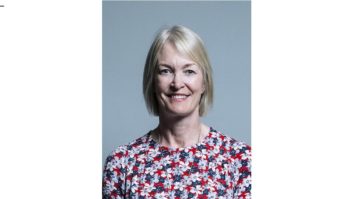LONDON — The uncertainty around Brexit continues to concern United Kingdom broadcasters, with respect to the possible fallout should the U.K. actually leave the European Union.
The level of concern appears to be directly related to each broadcaster’s level of reliance on the European market.

Private U.K. broadcaster Radio Caroline is a prime example. Once a pirate station broadcasting from an actual ship, today’s Radio Caroline is a licensed land-based broadcaster operating on 648 in the medium-wave band in North Essex and Suffolk. It is also available via DAB in Norwich, Aldershot, Brighton, Portsmouth, Birmingham, Glasgow and London; and to the world online at www.radiocaroline.co.uk.
Radio Caroline Station Manager Peter Moore is not afraid of Brexit, one way or the other. “Brexit will have no effect on us as we are funded by our listeners home and abroad.” Moore explained. “We have no advertisers based in Europe. If a European advertiser approached us, we do not see Brexit as a problem. Money can still be transferred and our signals will still go exactly where they go at the moment.”
This said Moore wishes that “Brexit would take place and be settled once and for all.”
NO COMMENT
Other commercial U.K. broadcasters approached by Radio World were not as forthcoming as Radio Caroline. In fact, no one at Absolute Radio, Bauer Media Group, or Global would comment on the impact of Brexit on their businesses.
The BBC was similarly tight-lipped. “I believe you’ve been in touch with the press office again about the potential impact of Brexit on U.K. radio,” wrote Mattie Allen, assistant publicist with BBC News and Current Affairs. “As you can see, I went back to you on the 24th April on this. It’s not something we would comment on.”
Maybe not. Yet the Guardian newspaper reported on January 24, 2019 “The BBC is considering Brussels as the location for a new EU base after Brexit to allow it to continue to broadcast across the continent. Belgium’s prime minister, Charles Michel, has disclosed that he held discussions on the possibility in Davos with the BBC’s director general, Tony Hall.”
In this case, the BBC’s Brexit issues are associated with TV rather than radio. “The BBC will need EU-based licenses for its international channels — which include BBC World, BBC Entertainment, BBC First, and BBC Earth — if it wishes to have them broadcast across the rest of Europe,” said the Guardian assuming that Brexit takes place. Possible BBC broadcast bases are said to include EU countries such as Belgium, Ireland, or The Netherlands.
This story was verified by The Times newspaper on Jan. 31, 2019.
“The BBC could set up a base in Brussels or Amsterdam after Brexit, its director-general has confirmed,” The Times reported. “Lord Hall of Birkenhead said that establishing a small office on the continent would allow the broadcaster to continue operating channels within the European Union. Channels licensed in the U.K. can broadcast across the EU at present, but this arrangement is likely to end after Brexit.”
All of these concerns depend on whether Brexit actually takes place or not. As of now, no one knows for sure.












